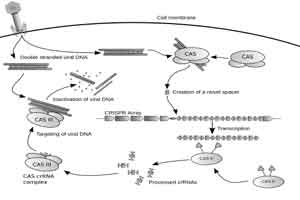- Home
- Medical news & Guidelines
- Anesthesiology
- Cardiology and CTVS
- Critical Care
- Dentistry
- Dermatology
- Diabetes and Endocrinology
- ENT
- Gastroenterology
- Medicine
- Nephrology
- Neurology
- Obstretics-Gynaecology
- Oncology
- Ophthalmology
- Orthopaedics
- Pediatrics-Neonatology
- Psychiatry
- Pulmonology
- Radiology
- Surgery
- Urology
- Laboratory Medicine
- Diet
- Nursing
- Paramedical
- Physiotherapy
- Health news
- Fact Check
- Bone Health Fact Check
- Brain Health Fact Check
- Cancer Related Fact Check
- Child Care Fact Check
- Dental and oral health fact check
- Diabetes and metabolic health fact check
- Diet and Nutrition Fact Check
- Eye and ENT Care Fact Check
- Fitness fact check
- Gut health fact check
- Heart health fact check
- Kidney health fact check
- Medical education fact check
- Men's health fact check
- Respiratory fact check
- Skin and hair care fact check
- Vaccine and Immunization fact check
- Women's health fact check
- AYUSH
- State News
- Andaman and Nicobar Islands
- Andhra Pradesh
- Arunachal Pradesh
- Assam
- Bihar
- Chandigarh
- Chattisgarh
- Dadra and Nagar Haveli
- Daman and Diu
- Delhi
- Goa
- Gujarat
- Haryana
- Himachal Pradesh
- Jammu & Kashmir
- Jharkhand
- Karnataka
- Kerala
- Ladakh
- Lakshadweep
- Madhya Pradesh
- Maharashtra
- Manipur
- Meghalaya
- Mizoram
- Nagaland
- Odisha
- Puducherry
- Punjab
- Rajasthan
- Sikkim
- Tamil Nadu
- Telangana
- Tripura
- Uttar Pradesh
- Uttrakhand
- West Bengal
- Medical Education
- Industry
Modification of human immune cells achieved by Scientists

The genome editing system known as CRISPR/Cas9 which modifies the human T-cells now opens new avenues for therapies of many serious health problems such as diabetes, AIDS, and cancer
Researchers from San Francisco-University of California have found a breakthrough in research for treatment of immune system controlled diseases like the diabetes, AIDS, and cancer. The medical process is initiated through modification of the human T-cells, also known as the immune cells, and the genome editing system is called the CRISPR/Cas9.
The immune cells play a pivotal role in these diseases, so the new discovery opens up the avenues for research in treatments from diabetes to AIDS to cancer, by altering the T-cells. Using this first of its kind approach, the scientists were able to disable a protein on the T-cell surface called CXCR4, which can be exploited by HIV when the virus infects T cells and causes AIDS. PD-1, a protein that has attracted intense interest in the burgeoning field of cancer immunotherapy, was also successfully shut down.
As reported by IANS
The gene-editing system has captured the imagination of both scientists and the general public because it makes it possible to easily and inexpensively edit genetic information in virtually any organism.
T cells, which circulate in the blood, are an obvious candidate for medical applications of the technology.
These cells not only stand at the centre of many disease processes but can also easily gathered from patients, edited with CRISPR/Cas9, then returned to the body to exert therapeutic effects.
Cas9, an enzyme in the CRISPR system that makes cuts in DNA and allows new genetic sequences to be inserted, has generally been introduced into cells using viruses or circular bits of DNA called plasmids.
The research was detailed in the journal Proceedings of the National Academy of Sciences.
Researchers from San Francisco-University of California have found a breakthrough in research for treatment of immune system controlled diseases like the diabetes, AIDS, and cancer. The medical process is initiated through modification of the human T-cells, also known as the immune cells, and the genome editing system is called the CRISPR/Cas9.
The immune cells play a pivotal role in these diseases, so the new discovery opens up the avenues for research in treatments from diabetes to AIDS to cancer, by altering the T-cells. Using this first of its kind approach, the scientists were able to disable a protein on the T-cell surface called CXCR4, which can be exploited by HIV when the virus infects T cells and causes AIDS. PD-1, a protein that has attracted intense interest in the burgeoning field of cancer immunotherapy, was also successfully shut down.
As reported by IANS
The gene-editing system has captured the imagination of both scientists and the general public because it makes it possible to easily and inexpensively edit genetic information in virtually any organism.
T cells, which circulate in the blood, are an obvious candidate for medical applications of the technology.
These cells not only stand at the centre of many disease processes but can also easily gathered from patients, edited with CRISPR/Cas9, then returned to the body to exert therapeutic effects.
Cas9, an enzyme in the CRISPR system that makes cuts in DNA and allows new genetic sequences to be inserted, has generally been introduced into cells using viruses or circular bits of DNA called plasmids.
The research was detailed in the journal Proceedings of the National Academy of Sciences.
Meghna A Singhania is the founder and Editor-in-Chief at Medical Dialogues. An Economics graduate from Delhi University and a post graduate from London School of Economics and Political Science, her key research interest lies in health economics, and policy making in health and medical sector in the country. She is a member of the Association of Healthcare Journalists. She can be contacted at meghna@medicaldialogues.in. Contact no. 011-43720751
Next Story


